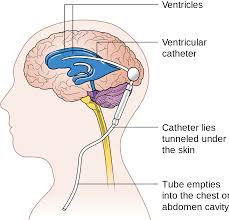记忆方法
音:闪它-----把它闪到其它方向、把它闪到一边。
2. shun => shunt.
2. shun => shunt.
中文词源
shunt 转轨,分流,调往
可能来自 shot 或 shut 的鼻音形式,最终来自 PIE*skeud,投,扔,射,推,词源同 shoot,shot,shut.
英语词源
- shunt (v.)
- early 13c., "to shy, start," perhaps from shunen "to shun" (see shun), and altered by influence of shot or shut. Meaning "to turn aside" is from late 14c.; that of "move out of the way" is from 1706. Adopted by railways from 1842. Related: Shunted; shunting.
- shunt (n.)
- 1838, in railway use, from shunt (v.). By technicians in the sense of "electrical conductor" from 1863. Medical use dates from 1923.
权威例句
- 1. The range can be increases by use of a shunt.
- 量程可以通过加上一个分流器来增大.
- 2. The effect is the same as that of placing a shunt resistor across the active gage.
- 效果相当于跨工作应变片加了一个分流电阻器一样.
- 3. But right the specific understanding of shunt period, endless and identical.
- 但对转轨期的具体理解, 不尽相同.
- 4. To understand the best opportunity 、 indication and merid of ETV compared with shunt.
- 阐明关于ETV的最佳手术时间,手术适应症及其相对于分流手术的优越性.
- 5. Objective To evaluate the long - term results and operative experience of distal shunt.
- 目的探讨远端脾腔静脉分流术治疗门静脉高压症的远期疗效.

